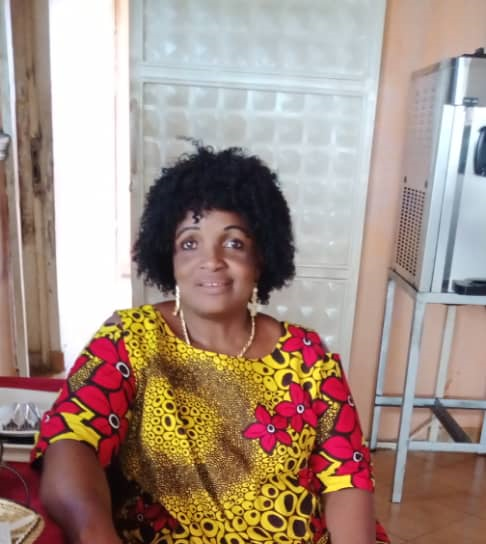As a young student, Anny Kapenga used to cringe at the cult-like worship of Mobutu Sese Seko, the then Zaire’s President. By then, in the early 1990s, Zaire was still under one party rule, and calls were increasing for Mobutu to open political space to allow other parties to operate. In the meantime, however, all Zairians were expected to show affection for Mobutu wherever they gathered in public.
Students across Zaire’s schools were required to sing and dance adoringly before his (Mobutu)’s portrait every morning before they went to class, and all school scholastic materials were emblemed with his portrait. A young Anne never really appreciated the obsession:
"Even at that stage, I knew it (the cult-like worship) was wrong because nobody was allowed to question why we were doing so. And I used to complain to my parents about it whenever I went back home,"
Anny Kapenga Tweet
The stifling of freedom of expression and association was Anne’s awakening to the importance of human rights, and she would soon be drawn into, and eventually fall victim to her country’s troubled political history.
In 2010, in conjunction with a colleague, she formed Maman Kulutu Foundation, to campaign against communal violence in her native Province Orientale in eastern Democratic Republic of Congo (DRC), which was being propagated by Hema and Lendu militia fights for provincial supremacy.
"Violence was denying our people settled livelihoods and destabilising families. Whenever anyone spoke out against it, they were witch-hunted. The women who dared to speak out against it would either be raped to silence them, or the militias would target young activists to sleep with them and then publish them on social media to discredit them and ruin their families"
Anny Kapenga Tweet
"Until 2020, I was surviving on odd jobs. Sometimes, people would call me to cook at their events. At some point, I got a short-term job as a cook in a local Congolese restaurant, but I left due to discrimination. Whenever people from my hometown passed by to eat, they would tell everyone about my story to shame me. Up to now, there are areas in Kampala where I do not feel comfortable to live or even show up"
Anny Kapenga Tweet
In 2020, DefendDefenders learned of Anne’s story and plight, and reached out to her, giving her subsistence support, and post traumatic counselling. She says she’s now trying to look beyond her traumatic past and look to the future but challenges the international community to do more to help with exiled human rights defenders like herself.
"The international community should push governments to do more to protect women human rights defenders and HRDs with disabilities because they’re doubly vulnerable. For exiled WHRDs like myself, DefendDefenders should push for a strong partnership with host government to make sure they can access loans like citizens, get mentored on how to use them for their economic wellbeing and get fully integrated in the community"
Anny Kapena Tweet

